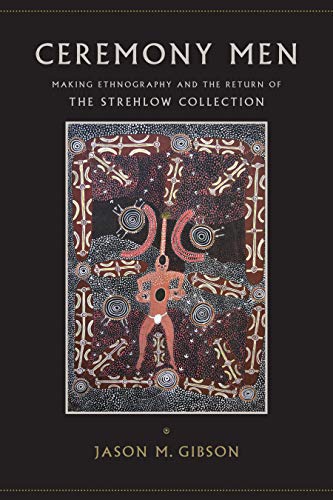English | 318 pages | SUNY Press (May 1, 2020) | 1438478550 | PDF | 4.88 Mb
By analyzing one of the world's greatest collections of Indigenous song, myth, and ceremony-the collections of linguist/anthropologist T. G. H. Strehlow-Ceremony Men demonstrates how inextricably intertwined ethnographic collections can become in complex historical and social relations. In revealing his process to return an anthropological collection to Aboriginal communities in remote central Australia, Jason M. Gibson highlights the importance of personal rapport and collaborations in ethnographic exchange, both past and present, and demonstrates the ongoing importance of sociality, relationship, and orality when Indigenous peoples encounter museum collections today. Combining forensic historical analysis with contemporary ethnographic research, this book challenges the notion that anthropological archives will necessarily become authoritative or dominant statements on a people's cultural identity. Instead, Indigenous peoples will often interrogate and recontextualize this material with great dexterity as they work to reintegrate the documented into their present-day social lives.
By theorizing the nature of the documenter-documented relationships this book makes an important contribution to the simplistic postcolonial generalizations that dominate analyses of colonial interaction. A story of local agency is uncovered that enriches our understanding of the human engagements that took, and continue to take, place within varying colonial relations of Australia.
DOWNLOAD





 Reply With Quote
Reply With Quote
